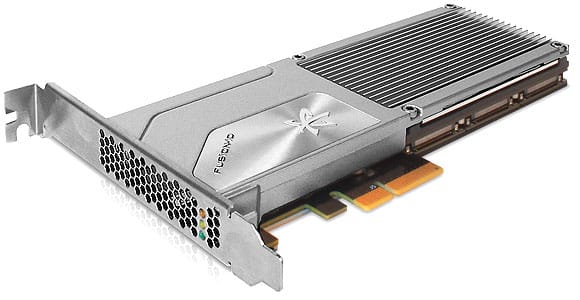Fusion-io has announced their financial results for its fiscal third quarter of 2012 which ended in March. Fusion-io reported record revenue of $92.4 million, which is up 12% over the prior quarter and 40% over the same quarter last year. Fusion-io highlighted several recent achievements including the SDK release, Fusion ioFX announcement and ioTurbine software update which now supports VMware ESXi 5.0 virtualization hypervisor.
Fusion-io has announced their financial results for its fiscal third quarter of 2012 which ended in March. Fusion-io reported record revenue of $92.4 million, which is up 12% over the prior quarter and 40% over the same quarter last year. Fusion-io highlighted several recent achievements including the SDK release, Fusion ioFX announcement and ioTurbine software update which now supports VMware ESXi 5.0 virtualization hypervisor.
Fusion-io continued to grow their business with Apple and Facebook, which made up 55% of their revenues for the quarter, from 57% previously. Fusion-io added new $1mm+ accounts with a large Chinese Internet services company and a domestic public services provider. They also announced a new key customer, Pandora, who is using Fusion-io acceleration products to deliver their streaming services. Pandora says the ioMemory products deliver performance that’s nearly as fast as RAM, with 10x the capacity and a substantially lower capital investment. Fusion-io continues to qualify their new ioDrive2 with systems vendors and enterprise end users; ioDrive2 now makes up over half of all shipments.
Fusion-io also talked about offering innovative storage solutions such as a new SCSI Express compliant ioMemory device co-developed with HP. Based off a 2.5-inch form factor, the device is hot-swappable and user-replaceable through the front of a server connected to a backplane. This is a similar path that we have also seen Micron take, with their 2.5-inch P320h PCIe SSD, although that is based on a different interface.
SCSI Express backplane shown (HP Blogs)


